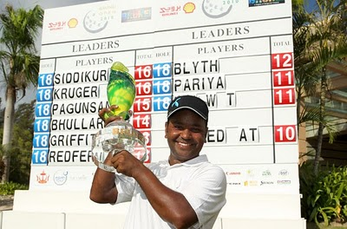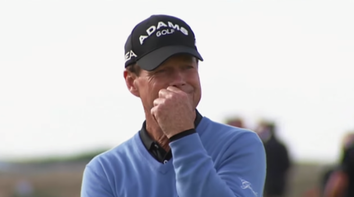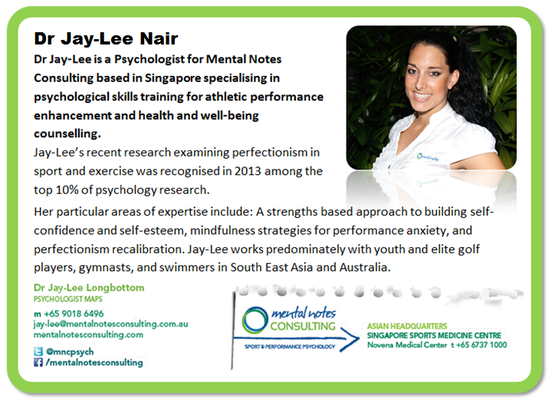"After all, how we feel on the inside is reflected on the outside. It is in the feeling that provides the most important distinction between cockiness and true confidence is made."  In my work as a performance psychologist in Asia, the conversation about raising self-confidence naturally comes up. I often here athletes tell me, “I know I need to be more self-confident, but I don’t want to be seen as cocky.” Some athletes have said they would rather be unconfident forever than be grouped into the cocky bunch by their peers. In my work, it is clear that cockiness is one of the most disliked traits among aspiring golfers and role models, and many believe there is a fine-line between high self-confidence and cockiness. How can you build true confidence necessary to compete at the highest level but stay humble in the process? In this article, I will share my top tips for setting you on the right path.  What is the Difference Between Self-Confidence and Cockiness? Self-confidence is interpreted by others through our communication style – how we speak, our gestures, eye contact, and body language. The ideal communication style inculcated by eastern philosophy is humble, harmonious, nurturing, modest, and indirect. However, the demonstration of self-confidence in sport is often interpreted and most closely associated with a style of communication in western philosophy, which reflects boastfulness, dominance and competitiveness. It is this form of expression that boarders on cockiness, the polar opposite to the ideal communication style in Asian culture. From this perspective, it is perfectly understandable that the very thought of focusing on training that boosts one’s self-confidence for a high achiever in Asia can be met with a lot of hesitation. It is human nature to make snap judgments of a person’s communication style to reflect high or low self-confidence. After all, how we feel on the inside is reflected on the outside. It is in the feeling that provides the most important distinction between cockiness and true confidence is made. True confidence is an inner feeling of self-belief that comes from a genuine space of knowing both your strengths and weaknesses and therefore the corresponding communication style is genuine, always allowing for qualities like modesty to shine through. Cockiness lacks genuine inner feelings. It is only a mask trying to project a certain image you think others will approve of. In this form, the outward expression comes across as fake, exaggerated or over the top.  Know your Weaknesses as well as your Strengths The most crucial element in building self-confidence is to know your strengths and put a plan in place that makes sure you are using your strengths to achieve your goals. A focus on our strengths is energising and we are typically performing activities we are great at and passionate about. Research by positive psychologist, Alex Linley acknowledges that you can develop from working on weaknesses, however, improvement is only possible when you are also working on your strengths. As a Realise2 practitioner, I have tools I use to identify an athletes individual strength, testing 60 different qualities, which also examines your weaknesses. On that note – true confidence over cockiness is about knowing your weaknesses as well as you do your strengths. This will ensure you have a growth mind-set - always ready to learn and improve no matter how well you are performing and how strong your confidence feels. When we think of genuine athletes with true confidence, Roger Federer, Jordan Spieth, and Steph Curry come to mind. They all have strong inner self-belief, but at the same time they understand their weaknesses as well as their strengths. They know that others have contributed to their success, and they are always open to getting better.  Be Authentic, Be Genuine Once you know your strengths and are actively engaging these strengths in your sport or work, your inner self-confidence will naturally grow. Staying grounded then comes from being authentic in your actions. When you are authentic, what ever you do, you do it with genuine conviction and without pretense. You always keep to your own values and beliefs, no matter what other people may want you to do, choosing to do things in a way that is right for you. Acting from this place will ensure you are performing tasks that are meaningful to you and communicating in a way that is natural, consistent and reflects the qualities you value the most. Get a Crew Spend time with others that value the same things you do and can honestly tell you when you are getting off track. There is no better way to celebrate your success, reflect on your failures, and also maintain authenticity than in the company of those who understand you the best. Follow these steps and you will build true confidence while remaining humble and staying true to yourself. |
Archives
June 2019
|
Proudly Supported By
Copyright © 2011 - 2018 Pro Tour Golf College
Website Managed By Golf Performance Media
All Rights Reserved
Website Managed By Golf Performance Media
All Rights Reserved


 RSS Feed
RSS Feed



